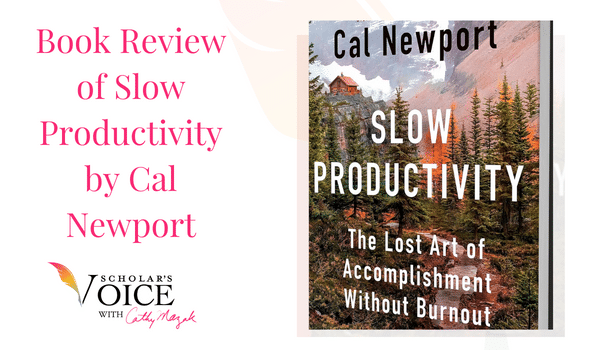Three Types of Writing Criticism and How to Respond

Nothing feels worse than having a piece of writing you’ve worked hard on rejected or criticized. But, it’s part of the academic life, so I’m teaching you how to deal with it in a healthy and positive way that will improve your writing and help get your message out there.
MORE DETAILS
On this episode we’re going to talk about 3 different types of feedback you might receive, how to spot the differences between them and how to respond. I’ll also tell you about an excellent resource to help with your mindset, and why you should consider disconnecting from both praise and criticism.
3 Types of Writing Criticism and How to Respond
1. Posturing
It should come as no surprise to anyone that there is a lot (I mean A LOT) of posturing in academia. The pressure is always on to sound smart, to respond to other people’s work in a way that shows what you’ve read and where you situate your work in the world. That’s not necessarily bad and it’s certainly part of the job. But sometimes that pressure to posture seeps into everything, including writing criticism.
Here’s how it might look in a written review:
- The reviewer’s criticism does not actually engage with what you wrote, but rather shows off how much he/she knows about the topic (this is the defining characteristic of posturing).
- The reviewer suggests you cite a completely different body of literature than the one your work relies on (likely a body of literature that he knows better than the one you cited).
- The reviewer calls you out for not citing one very particular article and implies that you can’t possibly write scholarship in this field without citing it.
How to Respond:
I suggest you make a table with two columns, detailing the specific criticism or recommendation on the left side, and how you addressed it on the right when preparing to respond to any feedback. To deal with posturing, you might note on your chart: “while I appreciate the reviewers suggestion to include ____ in my article, for ____ reasons I decided not to cite that here.” What this does is make the posturing of the reviewers apparent, and shows the editor that you’ll have none of it.
“Remember: it’s your work, and you can decide who to cite.” -Cathy Mazak
2. Silencing
The end goal of this type of criticism is to block or revoke publication.
What silencing might look like:
- A reviewer nitpicking small details of your work.
- A reviewer grasping at straws for reasons why your work shouldn’t be published at all, or should be retracted.
- Little to no evidence against your piece given other than disagreement with the main idea
I experienced this recently (from a colleague at my own university!) in response to this article I wrote for The Chronicle of Higher Education on what the role of university communities should be in the face of devastating circumstances in our communities.
How to Respond:
Like posturing, you need to see through this kind of criticism (good editors help). Silencing can put you on the defensive, but once you recognize it, you’ll see that the critiques have no basis or are not related to your main point. If your piece has an editor, be sure to get in contact with him or her and call out the silencing. Don’t get into an internet fight with the person—be above that!—and let your work speak for itself.
“If you let yourself become enraged or beaten down, then the silencer will win.” -Cathy Mazak
3. Constructive Criticism
This is the kind of feedback we want! Even though it might hurt, most criticism should be heard and addressed. The review process is there for a reason, and it is not to torture you! We are often so close to our own work that we can’t take a step back and see it from another perspective. The job of the reviewer is to show us our blind spots, see connections we missed, to call us out before publication so that we aren’t called out after.
That said, too many academics give up after receiving reviews. They put the reviews away and give up on the paper. Don’t do this! Remember: your unique, once-only-on-earth perspective on your field needs to be out there changing the world. DON’T let criticism relegate your writing to a drawer.
Here is a step-by-step plan for how to deal with the review process:
- Make sure you are in a good mental state before opening and reading reviews.
- After reading the reviews, wait 24 hours before you do anything.
- Re-read the reviews (after waiting 24 hours) and make a list of all the positive feedback. (We often gloss over this part, draw some attention to it!)
- Read through again and make a chart with one column detailing each criticism and a second column noting how you will address it.
- Take a first pass at planning how you will address each item on the chart. Note things that will be quick to fix, and things that will take longer to address.
- Start picking off the easy-to-fix items on the list.
- Schedule harder or more time consuming tasks onto your calendar, for example: adding additional literature, re-analyzing data, etc.
“Breaking down the revisions into smaller steps helps alleviate feelings of overwhelm and makes sure that you get your revisions done.” -Cathy Mazak
Disconnecting From Praise and Criticism
While accepting and dealing with writing criticism is all part of the job in academia, it is certainly not always easy. I want to recommend a great resource for helping you disconnect from both praise and criticism. Playing Big by Tara Moore has a wealth of helpful information on how and why you should do this. A few of the things she discusses:
- Feedback often tells you more about the person giving the feedback than it does about your work, or certainly about you as a person.
- If you are putting yourself and your work out there in the world as a woman, you are going to get criticized.
- Criticism hurts more when it mirrors beliefs we already hold about ourselves.
- Why should we disconnect from praise? Ask yourself: what do I want in life more than I want praise?
“Women who play big get criticized. Period.” -Cathy Mazak, referencing Playing Big by Tara Moore
Do you want to be part of a community of academic women who support each other, offer helpful advice and know where you’re coming from because they’ve been there too? Consider applying for Amplify: Faculty Writing Accelerator. To apply, click here.
Connect with me:
RELATED PODCASTS
Stay current in Academic Publishing
Subscribe to our newsletter:
In the Pipeline
writing tips, publishing trends, reading recomendations, free workshops





